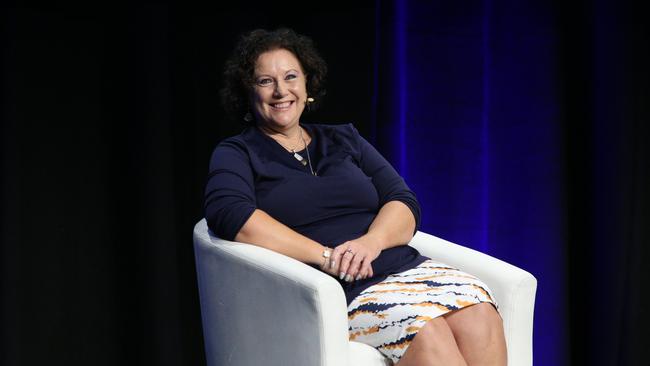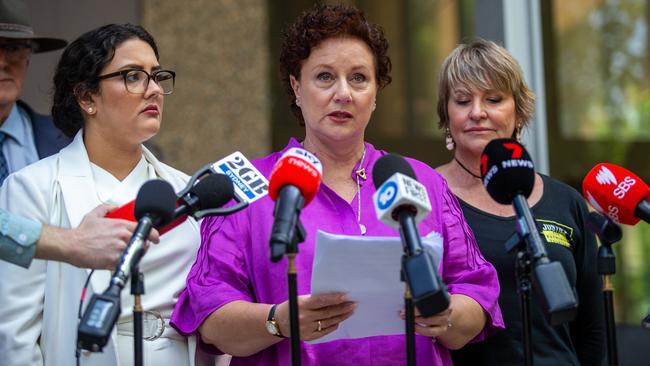‘Devoid of humanity’: NSW government stalls on Kathleen Folbigg’s compensation case
Kathleen Folbigg’s lawyer revealed the NSW government will not give a timeline, take calls or even meet to discuss the compensation claim, which experts have said could be upwards of $10 million.
National
Don't miss out on the headlines from National. Followed categories will be added to My News.
Kathleen Folbigg has had no word for a year from the NSW government about her bid for compensation after spending two decades in prison for the deaths of her four children before being acquitted.
Ms Folbigg’s lawyer Rhanee Rego has revealed the state will not give a timeline, take calls or even meet to discuss the case, describing the lack of response as “devoid of humanity”.
Ms Rego said the compensation claim, which experts have said could be upwards of $10 million, was not only about giving Ms Folbigg the “life she deserves to have,” it was also “the only way the state says sorry”.
“There’s been no apology to Kathleen, they’ve not even asked to have a meeting,” Ms Rego said.
“It is almost completely devoid of humanity.”

Ms Folbigg was sentenced to 30 years in prison over the deaths of her children, Caleb, Patrick, Laura and Sarah Folbigg, between 1989 and 1999.
She served 20 of those years before a landmark Special Commission of Inquiry found reasonable doubt over her guilt.
New scientific and medical evidence surrounding a rare genetic condition was presented to the inquiry, and Ms Folbigg walked free in 2023.
No state or territory in Australia outside the ACT is obliged to offer what is known as the “ex gratia” payment, and if NSW opted not to compensate Ms Folbigg she would not have recourse to complain.
Speaking at the Universities Australia conference in Canberra on Tuesday, Ms Folbigg said she wanted the compensation issue to be finalised so she could “complete the circle” and move forward with her life no longer “controlled” by the legal system and waiting on answers from politicians.
“I want to have my own agency again,” she said.

Ms Folbigg said she did not want to be a political football where decisions around whether to tackle her case were based on whether MPs perceived it was “popular” or not to deal with her case.
She has also called for genetic testing to become “standard” practice in future cases, used by both investigators and offered to parents searching for answers about the sudden death of an infant.
Ms Folbigg described the investigative techniques used during her case in 1999 as “toxic,” not based on real science and also prejudiced by automatically assuming wrongdoing by the mother.
“This can happen to anybody, I would like to see it not happen to anybody ever again,” she said.
“That’s the only reason to speak up, because there’s lessons that need to be learned.”
Her lawyer, Ms Rego, said in the years since Ms Folbigg’s conviction was quashed she had not seen the “signs of change” in the system necessary to avoid future miscarriages of justice.
“Just because the system is pushed to the right outcome eventually, doesn’t make the mark of a good system,” she said.
“Transparency, accountability, impartiality, all of these things do, and there is none of that at all.”





